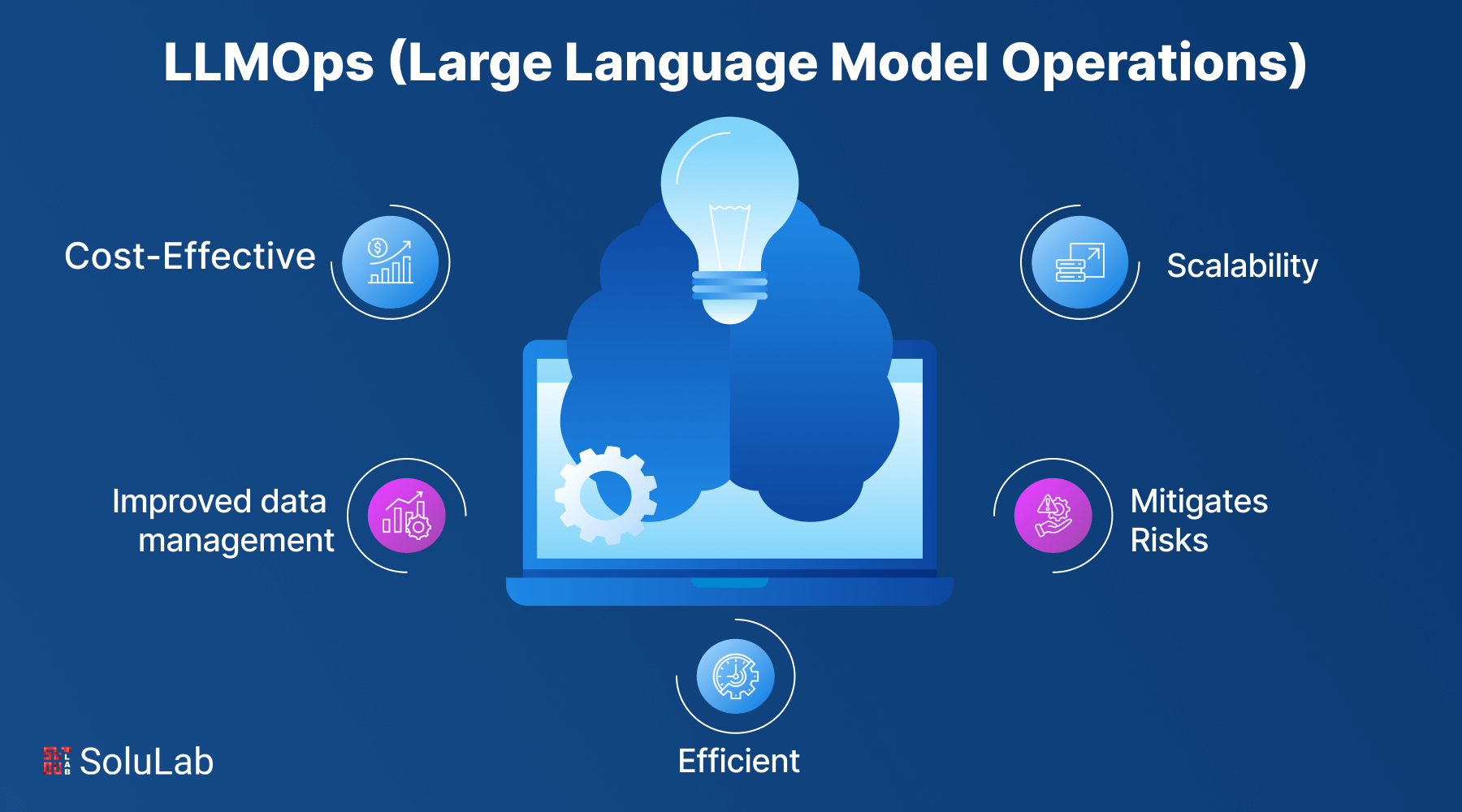What is LLMOps (Large Language Model Operations)?

The rapid advancements in artificial intelligence (AI) and natural language processing (NLP) have paved the way for powerful language models like GPT-3, GPT-4, and others that can perform complex tasks such as text generation, question answering, and content summarization. However, developing and deploying these models efficiently at scale requires a specialized operational framework known as LLMOps (Large Language Model Operations). Similar to MLOps (Machine Learning Operations), LLMOps is a set of best practices and tools aimed at optimizing the lifecycle of large language models (LLMs). This article delves into the key aspects of LLMOps, its benefits, and the role of an LLM development company in implementing this framework.
Understanding LLMOps (Large Language Model Operations)
LLMOps (Large Language Model Operations) refers to the methodology, processes, and tools that facilitate the end-to-end management of large language models. As LLMs have grown in complexity and size, operationalizing them—making them production-ready, scalable, and efficient—has become more challenging. LLMOps ensures that models are not only developed but also continuously monitored, maintained, and optimized throughout their lifecycle. This involves data management, model training, versioning, deployment, scaling, monitoring, and ongoing improvements.
Key Components of LLMOps
- Data Management
One of the core aspects of LLMOps (Large Language Model Operations) is efficient data management. LLMs rely on vast datasets for training, so managing data inputs, preprocessing, and ensuring data quality is critical. LLMOps provides a structured approach to handle these large volumes of data, ensuring the model is trained on relevant and high-quality data to achieve optimal performance. - Model Training and Fine-tuning
Large language models require significant computational power and specialized infrastructure for training. LLMOps simplifies this process by automating the model training pipeline and integrating mechanisms to fine-tune pre-trained models according to specific business needs. This involves managing cloud infrastructure, distributed training, and using resources efficiently to reduce costs and time. - Version Control
Just as with software development, versioning is crucial for LLMOps (Large Language Model Operations). Models undergo frequent updates and improvements, and keeping track of different versions ensures that the best-performing model is always in production. LLMOps integrates version control systems that track model changes and allow seamless rollbacks when necessary. - Model Deployment
Once trained, large language models need to be deployed in real-world applications. LLMOps ensures that deployment is seamless, scalable, and capable of handling high volumes of requests. Deployment pipelines automate the process, allowing for continuous integration (CI) and continuous deployment (CD), which means that model updates can happen without downtime. - Monitoring and Maintenance
LLMOps (Large Language Model Operations) doesn't end with deployment. Post-deployment, models need to be constantly monitored for performance, latency, accuracy, and security vulnerabilities. Monitoring tools within the LLMOps framework track these metrics in real-time, ensuring that models remain efficient, secure, and effective over time. - Scalability
Scalability is a major concern for companies leveraging large language models. LLMOps integrates auto-scaling mechanisms that ensure the model can handle varying loads of requests without compromising performance. This is crucial for businesses that deploy LLMs in production environments where demand can fluctuate rapidly. - Security and Compliance
Large language models can process sensitive information, so ensuring data privacy, security, and regulatory compliance is essential. LLMOps incorporates secure practices and tools to manage encryption, secure data storage, and adherence to regulations like GDPR or HIPAA, depending on the industry.
The Role of an LLM Development Company in LLMOps
An LLM development company plays a crucial role in the successful implementation of LLMOps (Large Language Model Operations) for businesses. These companies specialize in building, deploying, and managing large language models, offering services that streamline the operational aspects of LLMs.
- Custom LLM Development
Many organizations require language models that are tailored to their specific needs. An LLM development company can fine-tune or even build custom models that cater to unique industry requirements. For instance, healthcare companies might need models specialized in medical terminology, while legal firms may require models that understand complex legal jargon. - LLMOps Implementation
Implementing a robust LLMOps framework is often a complex and resource-intensive task. An LLM development company brings in the expertise and tools needed to establish this framework efficiently. They can manage the infrastructure, automate workflows, and set up monitoring systems to ensure that models operate at peak performance. - Model Maintenance and Updates
Ongoing model maintenance is another key service provided by an LLM development company. As new data becomes available or the business landscape evolves, models need to be updated regularly. The development company ensures that the models remain relevant by continuously fine-tuning and retraining them using the LLMOps framework. - Consultation and Strategy
Companies new to LLMs may not have the in-house expertise to develop and manage these models. An LLM development company offers consultation services, helping businesses understand the potential of large language models, strategize their implementation, and integrate LLMOps into their workflows.
Conclusion
LLMOps (Large Language Model Operations) is a critical framework for optimizing the development, deployment, and maintenance of large language models. As the demand for advanced NLP applications grows, businesses need efficient operational systems to leverage the full potential of LLMs. An LLM development company plays a pivotal role in building and managing these models, ensuring they are scalable, secure, and aligned with business goals. By integrating LLMOps, companies can unlock the full potential of large language models, driving innovation and operational efficiency.
- Art
- Causes
- Crafts
- Dance
- Drinks
- Film
- Fitness
- Food
- Games
- Gardening
- Health
- Home
- Literature
- Music
- Networking
- Other
- Party
- Religion
- Shopping
- Sports
- Theater
- Wellness


